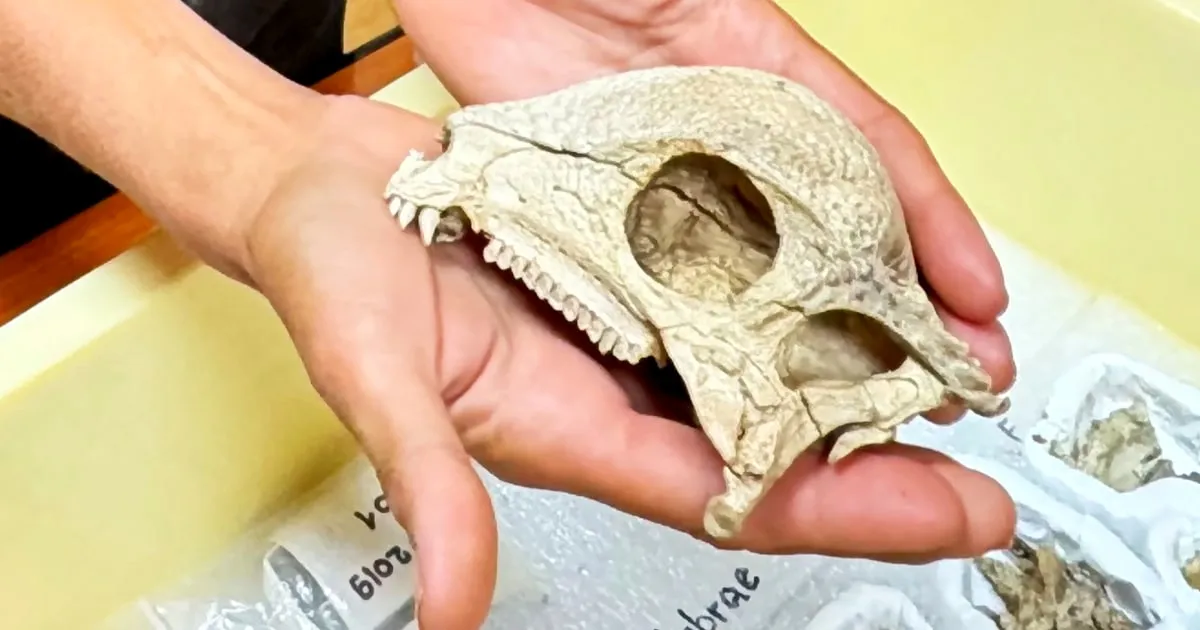
In a groundbreaking discovery, scientists have unearthed the oldest and most complete fossil of a pachycephalosaur in Mongolia. This remarkable finding was detailed in a study published on Wednesday in the esteemed journal Nature. The fossil, dating back between 108 and 115 million years, belongs to a juvenile specimen of a previously unknown species, which researchers have named Zavacephale rinpoche.
The fossil was found in the Khuren Dukh formation located in the Gobi Desert of Mongolia, a nation bordered by China and Russia. The research team, led by paleontologist Tsogtbaatar Chinzorig from the Mongolian Academy of Sciences, has made a significant contribution to our understanding of these mysterious dinosaurs.
Little is known about pachycephalosaurs, which were two-legged herbivorous dinosaurs that inhabited Asia and North America during the Cretaceous Period. These creatures are often described as some of the “most enigmatic” dinosaurs due to their unique, dome-shaped skulls. Their unusual features, along with representations in popular media such as the Jurassic Park films, have sparked an increasing fascination among the public.
Prior discoveries of pachycephalosaur fossils have predominantly consisted of skulls, with very few complete specimens available for study. “You could fit all of the pachycephalosaurs fossils in the world within a bathtub, more or less, or maybe two bathtubs — there are very few fossil pachycephalosaurs,” stated Michael Pittman, a paleobiologist from the Chinese University of Hong Kong, in an interview with NBC News.
The recent discovery in Mongolia is touted as the “most skeletally complete” fossil of its kind, offering researchers unprecedented insights into the anatomy of pachycephalosaurs. The individual Zavacephale specimen found was determined to be at least two years old and measured approximately three feet in length. More than half of its skeleton has been recovered, showcasing long legs, short arms, and small hands. Additionally, the fossil contained gastroliths, stones that the dinosaur likely swallowed to aid in grinding down the vegetation it consumed.
Despite being a juvenile, this specimen already exhibited the characteristic thickened bone on its skull, a hallmark of pachycephalosaurs. According to Chinzorig, the completeness of this fossil is vital for understanding how the cranial dome of pachycephalosaurs developed. However, the precise function of the dome remains a topic of speculation among scientists. Some suggest these structures might have been used for head-butting during combat or as a means to attract potential mates.
Interestingly, this fossil is approximately 15 million years older than any previously discovered pachycephalosaur specimens, providing crucial information on the evolutionary history of these dinosaurs. “It’s the oldest pachycephalosaur, so it’s giving us information on what earlier species were like and how they changed through time,” Pittman remarked. The discovery of an earlier specimen that still possesses the distinctive dome indicates that these features have been present for a significant duration in their evolutionary timeline.
In summary, Zavacephale was notably smaller than its later relatives, which could grow to lengths of about 14 feet. This new fossil not only enhances our understanding of pachycephalosaurs but also opens avenues for further research into their development and the ecological dynamics of their time.